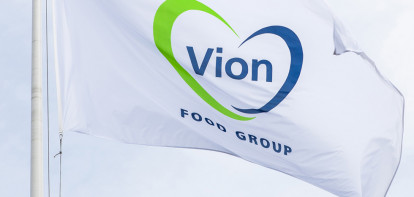Analysis Insights
This is why Vion plays open cards about Germany
When we asked Vion CEO Ronald Lotgerink (in the photo) last summer if leaving Germany was an option, he firmly replied that he did not want to completely get rid of the loss-making German activities. Today, the meat company suddenly announces that it is indeed in the process of definitively leaving Germany. This adds a new chapter to the restructuring saga, which sometimes came with wild rumors. It is striking that the company is now suddenly being transparent.
The announcement from Vion clearly deviates from previous reports on the German restructuring, which has been ongoing for some time and has been quite challenging. Previously, communication was only made when actual events occurred. Such as at the beginning of the year, when it was announced that four locations in Germany would be divested. This plan had already leaked in a preliminary stage but was then denied by Vion. Later, the rumors turned out to be true. That did not deserve praise.
Now Vion is taking a different approach and being transparent. Vion says it is working to find partners for the remaining German activities and the employees involved. Although it is not explicitly stated, it seems likely that Vion will completely withdraw from Germany. The plans have probably been in the works internally for some time. Last summer, the German branch was already made independent, quietly preparing for a possible sale. Vion still has more than ten locations in Germany. Therefore, the plans will have far-reaching consequences for the company; more than half of the revenue comes from the German market.
Tackling Rumors
A Vion spokesperson indicates that they do not want to say more than what is stated in the press release. However, it is mentioned that proactive communication about the ongoing plans was a deliberate choice. This is to provide clarity internally and externally and to tackle the rumors that are circulating once again. Vion is already in talks with buyers for the German factories, as indicated. The ball started rolling earlier this year when locations were divested, including to the major competitor Tönnies. It turned out that there was also interest in other German locations. It is noteworthy that Vion states that the German activities are profitable, something that is not evident from the most recent annual figures.
Although discussions with various interested parties are ongoing, a definitive departure seems very likely. Internally, Vion seems to have already parted ways with the German activities that have caused a lot of headaches in recent years. "By potentially divesting in Germany, Vion is paving the way for further investments in the Benelux," the company states.
By openly announcing the sales plans, Vion may also be trying to stir up interest. This could attract other parties and benefit the sale prices. Competing slaughterhouses in Germany are to some extent aware of the willingness to sell, but this does not apply to private equity firms. Perhaps investors will start bidding from now on. Final decisions still need to be made, as Vion points out. It is likely that Vion's German branch will be divided into parts.
History Repeats Itself
The management of Vion under the leadership of Lotgerink, who has had to present significant losses in recent years, cannot be blamed for letting the problems linger. If Vion does indeed leave Germany for good, it will be a drastic measure resulting in a significant loss of scale. Just over ten years ago, the British activities were also divested, almost halving the revenue. This history seems to be repeating itself.




